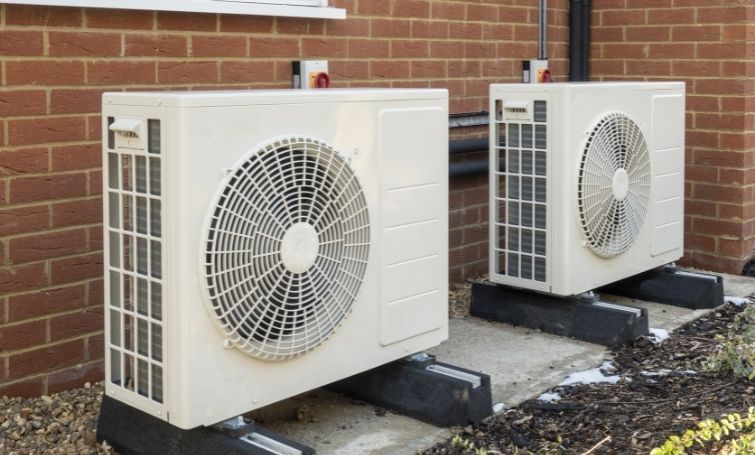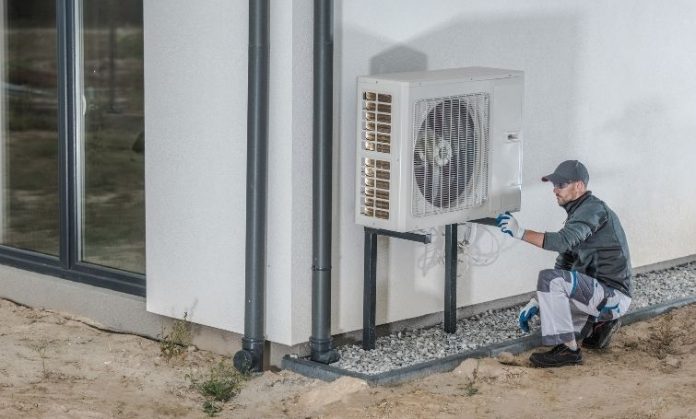Do you want to invest in a heat pump for your business? Is your current heat pump already due for a replacement? Before taking the next step of acquiring one, there are a few things you need to educate yourself regarding heat pump installation and replacement. This article discusses them; read on for this insight.
Understand the following aspects:
What Is A Heat Pump
A heat pump is an outdoor unit that contributes to the heating and cooling of your home. Despite it being outside, it’ll efficiently control the temperatures of your indoor space.
It has condenser and evaporator coils that transport cold or hot air into and out of your home.
What Are The Types Of Heat Pumps

There are two types of heat pumps. Your heating company installers Boyce VA will either install an air-source heat pump or a geothermal heat pump.
The air source utilizes the air in the atmosphere to heat or cool your space. When your home is hot, the heat pump will intake cold air from the atmosphere and bring it to your home. It will then remove the hot air and release it into the environment.
For the geothermal source, it’ll use the ground’s temperature to heat or cool your interior.
What Features Should You Look For
Look out for the following:
British Thermal Unit (BTU)
The BTU will be denoted as BTU per hour in a heat pump. Therefore, in this case, BTU refers to the amount of heat your heat pump will remove in an hour. The higher the BTU, the better it’ll meet your cooling needs. However, it’s good to note that the biggest heat pump capacity doesn’t mean it’s the best for you. You should choose one depending on your needs regarding square footage.
This means you need to know the floor area of the spaces you need to service. Knowing the size of the room is crucial to avoid inefficiencies. If you get a heat pump too small, it’ll struggle to heat or cool your room. On the other hand, if you get a unit too big, there’ll be too much short cycling, which leads to inefficiencies.
Coefficient Of Performance (COP)
COP measures the efficiency of your heat pump. It’s the amount of heat your pump will remove per energy use. For efficiency, it has to remove more heat with less energy consumption.
Therefore, the higher the COP of your heat pump, the higher its energy efficiency and the better it performs.
Heating Seasonal Performance Factor (HSPF)
HSPF is specifically used to measure the efficiency of the air source heat pump. This factor denotes the efficiency of your pump during certain seasons, especially winter and summer. You want to get a heat pump that’ll reach your desired temperatures during winter.
Purchase a heat pump with a high HSPF. This way, you’re assured it will meet your needs. If the pump’s HSPF isn’t your ideal temperature, you can get a heat pump with a higher one. Alternatively, you can adopt an alternative heat source for extreme temperatures.
Noise Levels
Your heat pump is bound to emit noise as it runs. However, you’re in a position to choose comfortable noise levels. The manufacturer will indicate the amount of noise your heat pump produces on its body or manual. This is always denoted in decibels (dB,) which is the measuring unit for noise.
In this case, the lower the decibel, the less noise it’ll produce. Therefore, be keen as you make your choice.
What Accessories Do You Need
Your heat pump needs the following to run efficiently:
An Alternative Heat Source
When the temperatures are extreme, either too hot or cold, your heat pump might find it difficult to run independently – it will need assistance. The alternative source could be a furnace. During extreme temperatures, you can decide to run the two systems together or shut off the heat pump.
A Thermostat
A thermostat will monitor the temperature to identify when the conditions are extreme. The thermostat is directly connected to your heat pump and will act accordingly depending on the need. If it’s too cold, it will automatically shut off your heat pump or turn on your alternative heat source. You need to acquire both an indoor and outdoor thermostat for this function.
What Are The Factors To Consider As You Pick A Heat Pump Provider
For the efficient running of your heat pump, it needs to be installed correctly. Therefore, you need to be wary of who you give the job to. To ensure your unit is properly installed, look for the following:
Qualification
Your chosen provider should have the necessary skills required to install or repair your heat pump. You can confirm this by asking to see the provider’s certification and license. A regulating body issues a certification in the said profession, which signifies the provider is a registered member and has the skills.
On the other hand, a license is issued by local authorities to legalize the provider’s operations. You don’t want to hire a heat pump provider who’s operating illegally.
Experience
Your heat pump provider can only offer quality services if they have practiced the art of heat pump installation and replacement. Therefore, the more the number of years in the said service provision, the better services you’ll get.
Costs
Cost is an essential aspect to consider in your selection process. You should choose a provider who offers a reasonable price for their services; it shouldn’t be too high or too low. Your budget should be your guiding principle; ensure you don’t surpass it. Instead, find a provider who’ll offer their services within your budget without compromising the quality of services.
Warranty
A warranty aims to cover your heat pump’s repair and maintenance costs. With a warranty, you won’t pay a dime for these services. Therefore, seek a heat pump provider who’ll provide you with a warranty. Consider choosing one whose warranty covers the greatest number of years.
Location
The location of your provider determines the response rate you’ll get from them. You want to hire a provider who’ll be within your premises within the shortest time possible should there be an emergency. Therefore, select a provider who’s within your business’s locality, either the head office or a branch, which has the required skillset.
What Are The Maintenance Tips For Your Heat Pump
For your unit to serve you properly, you need to maintain it. Maintenance also increases your heat pump’s life span, which is desirable for any equipment. Therefore, consider practicing the following:
- Clean and change your filters regularly to allow for adequate airflow.
- Keep your indoor temperature steady; avoid adjusting your thermostat every so often. Your heat pump might find it difficult to keep up with all changes and run inefficiently.
- Avoid manually turning your heat pump on and off. Let the thermostat do this on its own.
- Cover your heat pump to prevent the entry of debris into it or snow. However, ensure there’s sufficient airflow.
- Practice preventive maintenance. You can do this by having routine inspections from your provider; they’ll assess your unit and identify and rectify any issues they find.
Conclusion
As seen, there’s so much to learn regarding your heat pump. This article has covered the basic but essential aspects that you need to know regarding heat pump installation and replacement. Taking them into consideration can help you choose the best heat pump for your needs, including the right provider for the process.



























